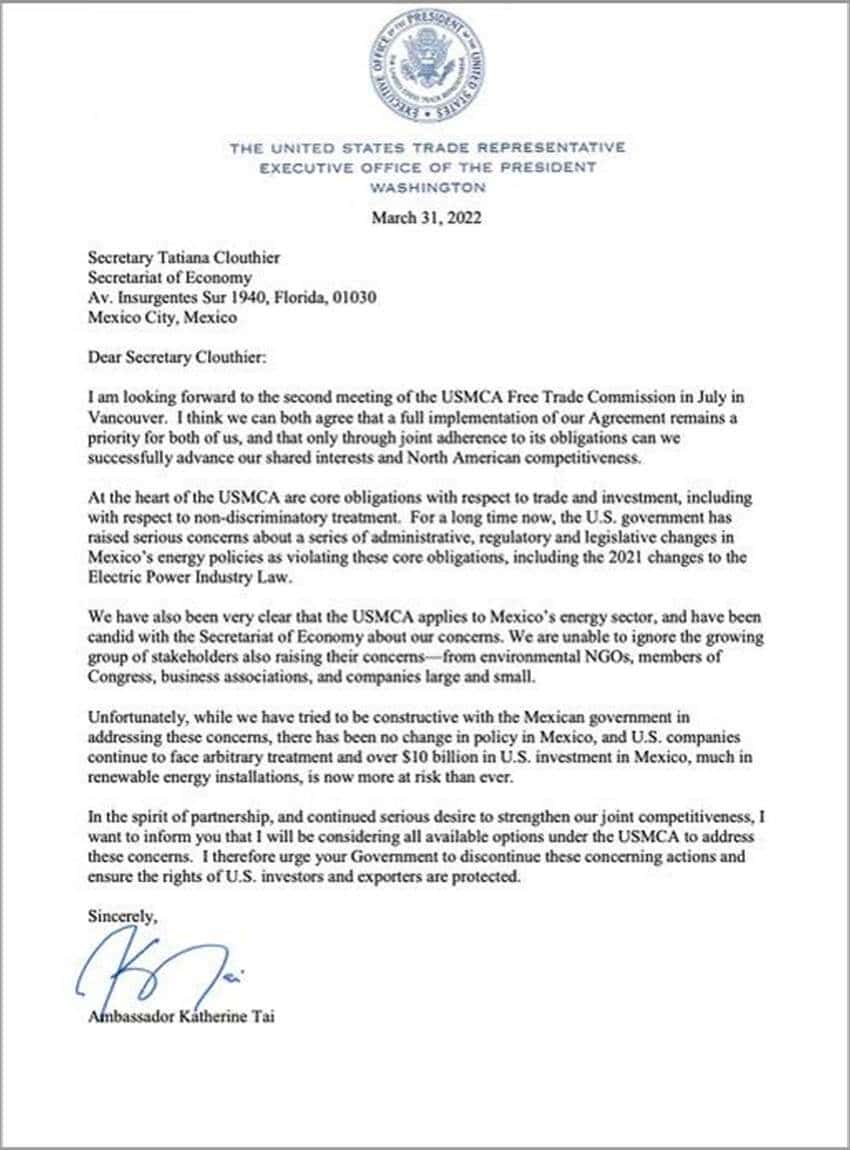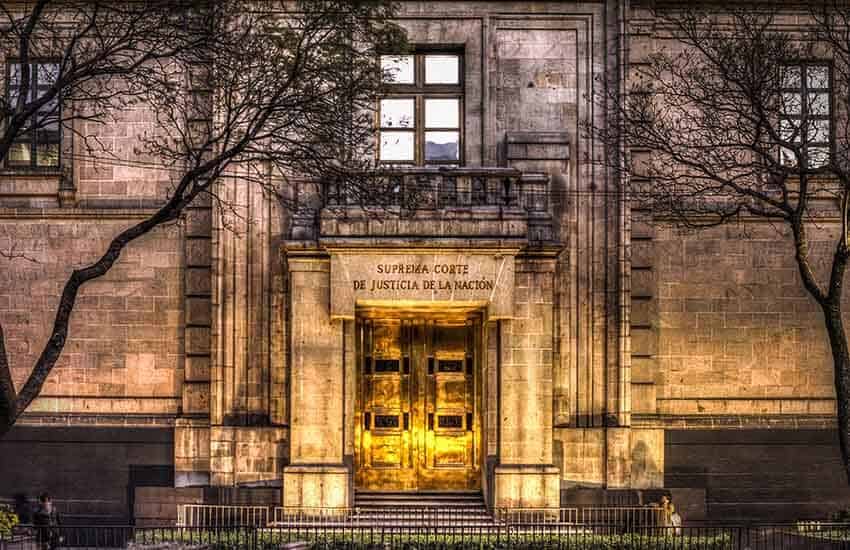The United States government has warned that Mexico’s energy sector policies place US $10 billion in U.S. investments at risk.
United States Trade Representative Katherine Tai cited the 11-digit figure in a letter to Economy Minister Tatiana Clouthier last Thursday.
According to the newspaper Reforma, which saw the private letter, Tai said the Electricity Industry Law – which gives power generated by the state-owned Federal Electricity Commission (CFE) priority on the national grid over that produced by private and renewable energy companies – poses a great risk to United States energy projects in Mexico.
The Supreme Court on Tuesday is beginning debate on the constitutionality of the law, which was passed by Congress last year.
Tai lamented that Mexico’s energy policies haven’t changed despite the U.S. government’s efforts to collaborate constructively with its Mexican counterpart.

Several U.S. officials, including Tai, have raised concerns about the federal government’s energy policies and plans, including a constitutional bill that would guarantee 54% of the electricity market to the CFE.
Ambassador Ken Salazar acknowledged last month that United States energy companies are having problems securing the permits they need to operate without encumbrance in Mexico, while U.S.-owned fuel storage terminals have been shut down by authorities for allegedly unclear reasons.
Despite U.S. concerns, President López Obrador said Friday that he wouldn’t make any changes to his proposed electricity reform, and he is also determined to strengthen the role state oil company Pemex plays in the energy sector.
In her letter to Clouthier, Tai contended that United States companies are being treated arbitrarily in Mexico. Renewable energy sector investments are at greater risk now than at any previous time, the trade representative said.
Reforma noted that the $10 billion figure cited by Tai is more than triple the value of Mexican avocado exports to the United States in 2021, which totaled $2.8 billion.
Tai told Clouthier that she would consider all available options under the United States-Mexico-Canada Agreement to challenge energy sector policies that the U.S. believes violate the three-way free trade pact.

She urged the Mexican government to suspend laws and policies about which the United States has raised concerns, and protect the rights of U.S. investors.
Meanwhile, López Obrador claimed Tuesday that some opposition lawmakers would support his constitutional bill, which would also get rid of two independent energy sector regulators.
He said he had information that some legislators with the Institutional Revolutionary Party (PRI) and even a National Action Party (PAN) lawmaker would “rebel” and support his reform.
“I call for that, for them to rebel so that they are authentic representatives of the people and not employees of vested interest groups,” López Obrador said.
“They shouldn’t be traitors to the homeland, they should rebel, have the arrogance to feel free,” he said.
“… I also call on people to be alert, because debates [on the electricity reform] are going to start in the Chamber of Deputies … and we have to see who defends [private and foreign] companies,” rather than the state, López Obrador said.
“Because this has happened in other times. The PRI and the PAN came to an agreement when they still had the people fooled that they were different, and they voted for [the contingencies fund] Fobproa to convert private debt into public debt, and that enormous debt still exists,” he said.
With reports from Reforma
